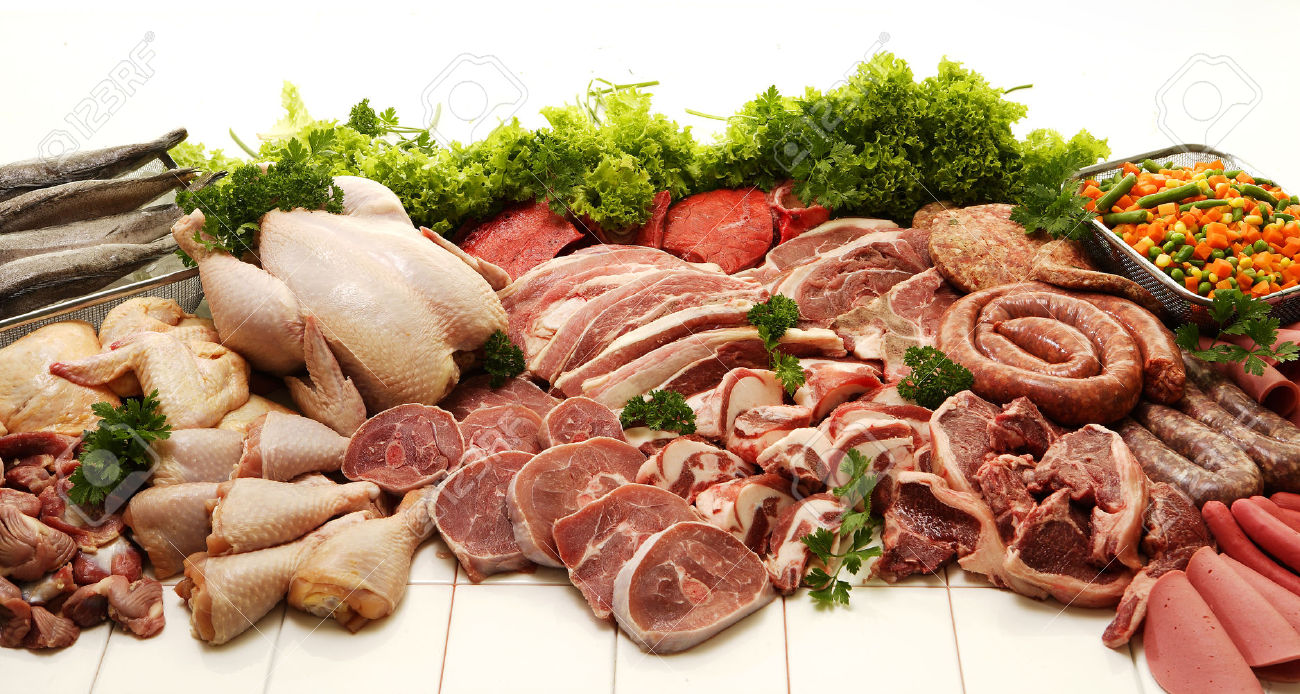
Agricultural News
Researchers Claim- What You Eat Depends Largely on Where You Live
Mon, 10 Oct 2016 03:53:27 CDT
 Walk through the produce aisle in a grocery store nearly anywhere in North America and you are likely to find fruits and vegetables imported from abroad alongside numerous iterations of domestic favorites. While the variety of foods available is striking, diets of those living in temperate areas are still considerably less diverse than those living in the tropics where a more genetically diverse set of species are produced and consumed.
Walk through the produce aisle in a grocery store nearly anywhere in North America and you are likely to find fruits and vegetables imported from abroad alongside numerous iterations of domestic favorites. While the variety of foods available is striking, diets of those living in temperate areas are still considerably less diverse than those living in the tropics where a more genetically diverse set of species are produced and consumed.
A new study published in the October 5 edition of the journal PLOS ONE finds that the impact of globalization is less than expected when it comes to the food we grow and eat. As it turns out, what you eat depends largely on where you live. The study is the result of an ongoing collaboration between biologists and economists from several universities through the National Socio-Environmental Synthesis Center (SESYNC) at the University of Maryland.
"The diversity of the food we eat hasn't changed as much as we expected it would with globalization," said study co-author Jeannine Cavender-Bares, an associate professor in the University of Minnesota's Department of Ecology, Evolution and Behavior, who led the working group together with Regents Professor Stephen Polasky at the University of Minnesota. Both are fellows at the Institute on the Environment. "We still tend to tend to eat based on the biodiversity around us even though we could eat anything," she added.
Despite increased access to more kinds of plants, a country's plant production and consumption patterns are still largely determined by local evolutionary legacies of plant diversification. Because a greater diversity of lineages across the tree of life naturally occur in the tropics, tropical countries produce and consume a greater diversity of plant products than do temperate countries. And while temperate countries have the capacity to produce and consume more plant species than the many tropical countries, the plant species cultivated are drawn from fewer branches on the tree of life.
Lead author Erik Nelson, an applied economist at Bowdoin College and former University of Minnesota graduate student advised by Stephen Polasky, called the results a surprise.
Nelson expected to observe increased specialization in the crops countries produce and a shift in consumption patterns toward a more diverse set of plants facilitated by global trade. In the manufacturing and services sectors globalization has incentivized countries to concentrate production on what they do best and trade for the rest. Typically what countries trade for expands rapidly as they get richer. It appears that these dynamics have not been as forceful when it comes to food production and consumption. "We have not seen a lot of increased specialization in agriculture around the world like we have in other economic sectors areas such as manufacturing, finance and technology," said Nelson. And when it comes to consumption, the richness of items we consume (think multiple apple varieties) has responded to increases in trade and wealth, but not the diversity.
Nelson said there may be a few reasons that practice doesn't fit theory when it comes to the spatial patterns of food production, including the cultural importance of local food, government subsidization policies that de-incentivize specialization in crop production, and lack of access to capital and transportation for farmers in developing countries. But the lack of specialization also has implications for the global food supply. While some redundancy in crop production is a safeguard against devastating losses due to weather and pests, it is also a source of inefficiency; a growing concern as the world population continues to climb and food security becomes an even more pressing issue.
"We need to become more efficient in agriculture to meet demand," said Nelson, but food may be different than other commodities as it turns out, so we should think about the implications and whether it a good or bad thing in terms of food security."
"The more a team is interdisciplinary, the greater the chance to bring new insight on old theories," said Matt Helmus, assistant professor of biology at Temple University who co-led the study. "What excited me about working with the applied economists on our team was that they introduced me to these long-standing economic theories, that together with my knowledge on biodiversity statistics, we were able to finally test."
source- Univesity of Minnesota
WebReadyTM Powered by WireReady® NSI
Top Agricultural News
More Headlines...





